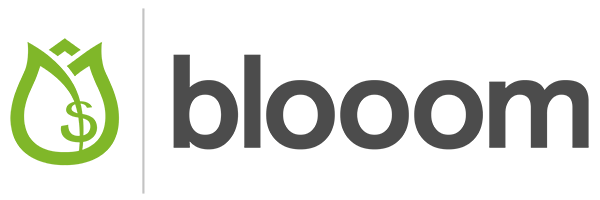The following is a guest post from Marc, a personal finance blogger at VitalDollar.com. If you’d like to submit a guest post to Money Q&A, check out our Guest Posting Guidelines.

Managing your money is a lifelong process, and sometimes it’s difficult to feel like you’re making any headway. If you want to know what you can do today to put yourself in a better financial situation, how about developing some good habits?
In this article, we’ll take a look at 10 good financial habits that you should develop, as well as specific things you can do today to start making progress.
Top 10 Good Financial Habits and Action Steps
1. Live Within Your Means
Regardless of how much money you make, it’s important to develop a habit of living within your means. Easy access to credit and opportunities to finance all kinds of things make it tempting to stretch the boundaries of what we can comfortably afford. It’s not an easy habit to develop, but probably the most important.
Action step: Create a budget based on your current income. If you need help, see How to Create a Budget that Works.
2. Track Your Spending
It’s impossible to manage your money effectively if you don’t know where it is going. Get in the habit of recording your expenses (and categorizing them) so you can see exactly how much you are spending, and what you are spending it on.
When you take the time to look at your spending you may be surprised by the results. This simple habit may help you to identify a few key areas where you need to cut back.
Action step: Create a simple spreadsheet with columns for the date, dollar amount, item, and category. Record your expenses each day.
3. Pay Your Bills on Time
Avoid unnecessary late fees and interest charges by paying your bills on time. You can use an app like Mint to get organized and be notified of upcoming bills. When you know which bills are coming and when you can plan to make sure you have enough for all of your bills when they are due.
Action step: Signup for a free Mint account, or use a spreadsheet or calendar to track your upcoming bills before they are due.
4. Pay Your Credit Card Balance in Full Each Month
Credit card debt can be extremely damaging to your finances. I’m not against credit cards (actually, I use them for almost every purchase so I can get rewards), but you need to be careful with them. The best way to avoid problems is to only use credit cards when you have the money to buy something, and pay the balance in full each month.
Action step: If you currently have credit card debt, choose a payoff strategy (like the debt snowball or debt avalanche) and freeze spending on your cards until they are paid off.
5. Contribute to a 401(k) Consistently
A 401(k) is the primary means of retirement savings for most Americans, but most people aren’t contributing enough. If your employer offers a match, like most do, be sure that you’re contributing enough to get the full match. If not, you’re essentially passing on free money.
A 401(k) retirement plan is not only a great way to save for retirement, but it can also help to reduce your taxable income. One of the great things about the 401(k) is you can set automatic contributions that will be taken out before you get your paycheck, so the saving and investing are done for you.
Action step: Check with your employer’s HR department to be sure that you’re contributing enough to get the full match.
6. Set and Asses Financial Goals
Setting your own financial goals will give you something specific to work towards. Without goals, it’s easy to wander aimlessly. Goals help to keep you focused and on track.
It’s also important to occasionally assess the progress that you’ve made toward your goals to see if you are on the right track.
Action step: Set specific, measurable financial goals for the short-term and long-term.
7. Wait on Purchases
One of my favorite ways to save money is simply to wait on purchases, especially major ones. Rather than buying something spontaneously, get in the habit of waiting a few days. You may realize you really don’t want or need it, or maybe a cheaper alternative will do.
Action step: Put the brakes on that purchase you’re about to make. Wait a few days to make sure it’s the right decision.
8. Use a Side Hustle to Make More Money
A side hustle is anything that brings in money aside from your full-time job. There are countless possibilities, and regardless of your skills or experience, there is something you can do to make extra money.
If you’re looking for a little extra breathing room in the budget, or if you want to make some money that you can save or invest, consider a side hustle.
Action step: Choose a side hustle that interests you. If you’re looking for ideas see this collection of 150+ side hustle ideas.
9. Track Your Net Worth
Net worth is an extremely important metric that most people ignore. Your net worth can serve as a measuring stick that gives you a good idea of your overall financial situation. I’ve found that tracking net worth also serves as a very powerful motivator.
Action step: Signup for a free Personal Capital account to make net worth tracking quick and easy.
10. Give
Giving to others is a great habit that we all should consider. There are countless organizations and causes that use donations to do great things for people in need.
Action step: Select an organization or cause that is important to you and either donate today or set a goal for what you want to donate throughout the next year.
All of these habits are extremely powerful, and you can also get started with each one of them today. Follow the action steps in this article and you’ll be well on your way to developing some outstanding habits.
Author Bio: Marc is a personal finance blogger at VitalDollar.com. He has been self-employed as a blogger since 2008. At Vital Dollar, you’ll find articles with tips and practical information on ways to save money, how to manage money, and how to make more money.


